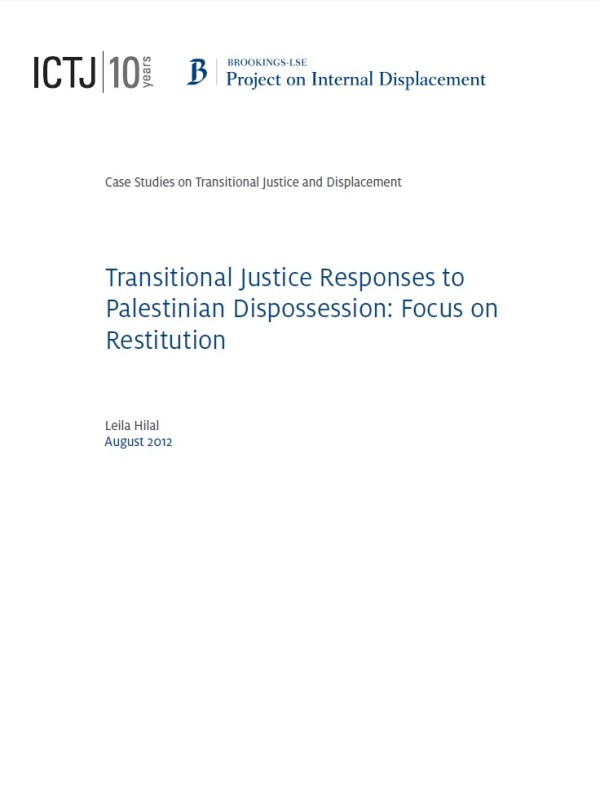The protracted displacement of Palestinian refugees presents a complex set of challenges for the international refugee, humanitarian, and transitional justice fields. For the most part, these global movements have treated the Palestinian situation as a case apart: Palestinian refugees living in the areas where the UN Palestinian refugee agency (UNRWA) operates are excluded from the 1951 Refugee Convention, and policies regarding restitution as a component of durable solutions to displacement have not typically been viewed as relevant to the Palestinian case. This paper explores the conceptual and practical challenges that arise when considering restitution for Palestinian refugees, and addresses these challenges in order to highlight the legal, practical, and political relevance of property restitution to reaching a viable settlement of the Israeli-Palestinian conflict.
Transitional Justice Responses to Palestinian Dispossession: Focus on Restitution
The protracted displacement of Palestinian refugees presents a complex set of challenges for the international refugee, humanitarian, and transitional justice fields. For the most part, these global movements have treated the Palestinian situation as a case apart: Palestinian refugees living in the areas where the UN Palestinian refugee agency (UNRWA) operates are excluded from the 1951 Refugee Convention, and policies regarding restitution as a component of durable solutions to displacement have not typically been viewed as relevant to the Palestinian case. This paper explores the conceptual and practical challenges that arise when considering restitution for Palestinian refugees, and addresses these challenges in order to highlight the legal, practical, and political relevance of property restitution to reaching a viable settlement of the Israeli-Palestinian conflict.
